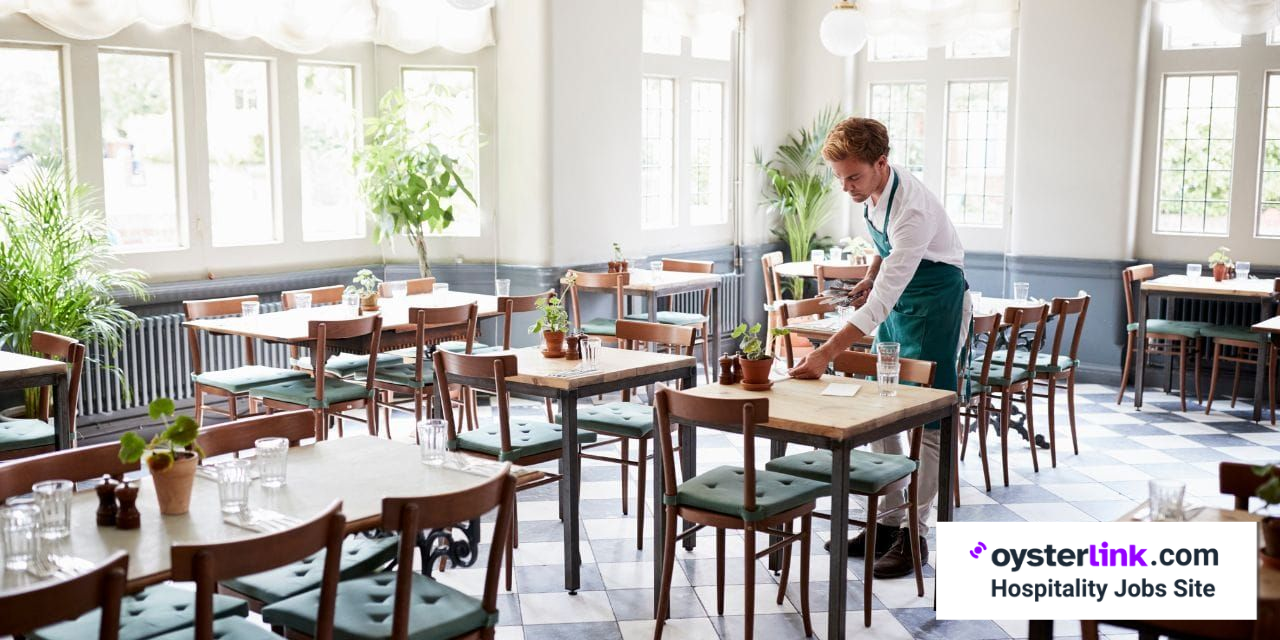Jenna Spurrier is a Co-Owner of Indianapolis-based Pier 48 Fish House & Oyster Bar that just celebrated its 4th Anniversary. Jenna’s path into the hospitality industry is a bit different from the usual, as she transitioned to it from her career as an investment advisor. In the interview, Jenna opened up about the economics of running a restaurant, why being transparent about financials with employees matters, and how she unexpectedly fell in love with the industry.
Why did you decide to start a restaurant?
Jenna Spurrier: It has never been my dream to be a restaurant owner, but it’s where things naturally went. It just so happens that anything that I put my mind to, I'm always going to put my best foot forward.
Back in 2018, a couple wanted to open a restaurant. They were passionate about it and convinced some friends—around six people, I’d say—to invest. They managed the initial build-out and planning. But then, in March of 2020, due to COVID, they backed out of the venture, leaving us, the remaining partners, to make a tough choice. We decided to keep it going. It's been over four years now, and we're still here.
As an investment advisor, would you say the restaurant industry is a good investment?
Jenna Spurrier: For most people in the industry investing in their own restaurant is not about money. Often, it’s about creating a job they love for themselves and their team.
But if I’m being frank, I probably wouldn’t open a restaurant right now. If I were to invest, it would likely be in areas that address essential needs, like food production or the availability of healthier options. Right now, we face a significant lack of accessible, healthy food. It’s much easier to get processed, unhealthy options, and that’s something I'd love to change.
With rising costs for labor and food, keeping a restaurant profitable is tougher than ever, how are you managing to get by?
Jenna Spurrier: It has become increasingly more difficult. There are only two ways to address inflation – you either decrease portions or increase prices. Changing our portions has never been an option for us, so case we had to increase prices, even though we tried to be as as conservative as possible on it.
Reducing the menu also helps to ensure cross-utilization of the ingredients. You may notice that many establishments now aim to keep a small, efficient menu because fewer items mean fewer chances for ingredients to go to waste.
But the inflation is not the only thing the industry struggles with. No one’s addressing how severely EIDL loans impact us, and it’s driving some businesses to the point of risking personal assets like homes and savings.
EIDL loans were extended to small businesses, including many restaurants, during COVID. There’s been over $500 billion given out in EIDL loans, and many of us, myself included, assumed these loans might be forgiven, similar to PPP loans. Instead, repayment terms are escalating rapidly, from 10% to 75% of the loan amount, and most restaurants simply don’t have the income to keep up with these payments. I think many establishments are only still open because of these loans, even though the financial strain is overwhelming.
Despite all of these challenges, what keeps you going?
Jenna Spurrier: I’m going to get a bit emotional on that one. My favorite part is the impact we have on the lives of everyone who works here and our customers.
Some of the most important times in our lives are centered around going out to eat.
It means the world to us that people choose to spend some of their most special occasions with us—Valentine’s Day, graduations, baby showers. We've had at least four proposals and three weddings here. It’s truly a privilege to do what we do.
How do you support your employees?
Jenna Spurrier: Of course, we genuinely care about our employees and offer full benefits. But what I’ve learned to be the key is to just make sure we are there for them anytime they want to talk and give feedback. We as owners are also very transparent — we share financial information like sales, costs, and even access to QuickBooks.
My advice to the owners and managers is to make sure your team sees you as their partner and doesn’t just use them as your resource for profit. If I see a table needs to be cleaned I'll clean it so, if the toilet's clogged I'll fix it.
I think that is why the majority of our team members have been with us for at least two years, which is rare in the restaurant industry, especially in a downtown location where staff turnover is high.
How do make sure you hire the right people?
Jenna Spurrier: Many candidates get into the restaurant business, especially the front-of-house positions, only because they need some cash in their pocket right now. Many corporate restaurants pay credit card tips through payroll, meaning servers don’t take home cash tips that day, but we give our servers 75% of their credit card tips right away to take home, with 25% withheld to cover taxes. It’s a balance, but it’s important that they aren’t hit with a big tax bill at the end of the year.
It also helps that in Indiana servers need a liquor license, which requires passing a tough test. It means we know the candidates are already committed. We also have a probationary period where they train in different roles, like server, host, and food runner, before becoming full staff. This way, we can see if they’re a good fit without a big upfront investment in uniforms and other resources.



.jpg)

